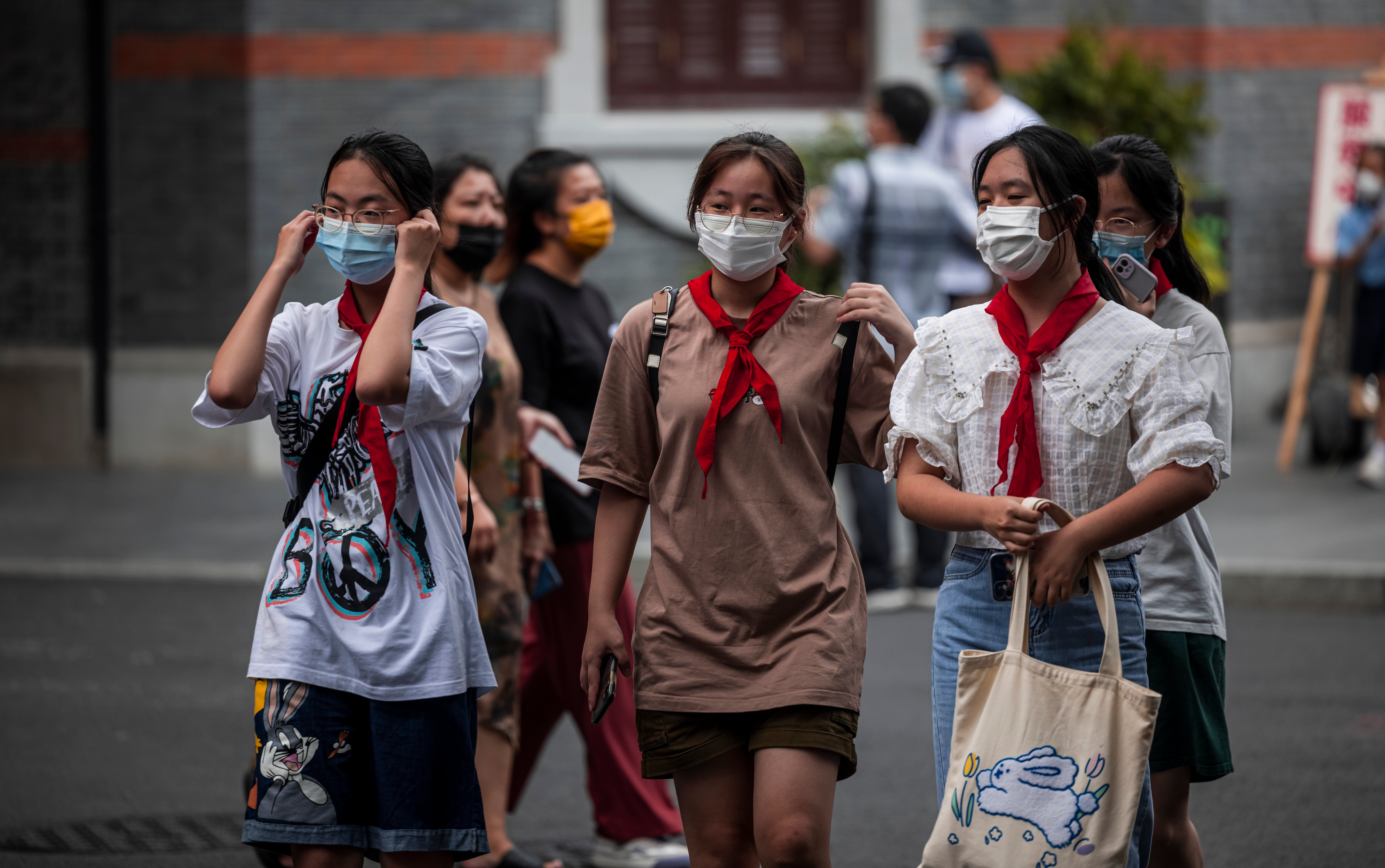China bans written exams for six-year-olds as part of sweeping education reforms
Beijing said too frequent examinations ‘harms their mental and physical health’

China has announced a ban on written exams for children aged six and seven as a part of larger education reforms to ease the burden on students and parents.
The Chinese ministry of education on Monday released a notice specifying that first and second grade students of elementary schools would not sit for written examinations while students of other grades will have only one final exam every semester.
Junior high schools would be allowed to hold one midterm examination of different subjects based on the progress of the student.
This has come as the latest effort by the government to ease the pressure on students and parents in the highly competitive Chinese education system. Previously in July, Beijing banned private tutoring firms operating in the country to control them from making profits and accepting foreign investment in sweeping policy reforms.
In a statement, the ministry said on Monday: "Exams are a necessary part of school education.... [but] some schools have problems like excessive exams, that cause excessive burden on students...this must be corrected."
Earlier students used to take exams from the very first year of primary school until a university entrance exam at the age of 18, known as the gaokao - the single exam that is required for admission in higher institutions.
The ministry said it made the changes recognising that “too frequent exams” can cause students to be “overburdened and under huge exam pressure.”
"Non-graduating junior high students are also not allowed to organise weekly tests, unit exams, monthly exams etc. Examinations disguised under various names like academic research is also not allowed,” the ministry said.
It also forbade after-class tutoring sessions by schools, saying that school cannot extend or adjust the timings of classes or teaching schedules at will.
But extracurricular activities to enrich students after school have been allowed and teachers as well as retired teachers and volunteers are being encouraged to host such classes.
The new guidelines are part of the wider reforms in China’s highly competitive education sector where education inequality is widespread with more affluent families willing to spend thousands on their children’s tutoring.
Schools have been banned from giving homework to first graders and were asked to limit homework for junior high school students to the limit of 1.5 hours a night.
The government has also restricted all private tutoring firms, ordering them to turn into non profit and restricted foreign investment in the industry, crippling around $120bn (£87bn) worth industry.
American application Duolingo, the global language-learning app, is not available on the Chinese app stores following announcements, according to South China Morning Post.
Subscribe to Independent Premium to bookmark this article
Want to bookmark your favourite articles and stories to read or reference later? Start your Independent Premium subscription today.

Join our commenting forum
Join thought-provoking conversations, follow other Independent readers and see their replies